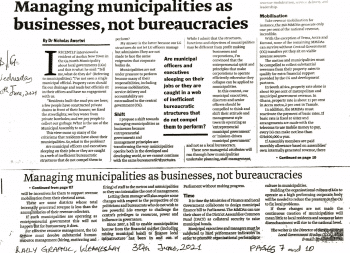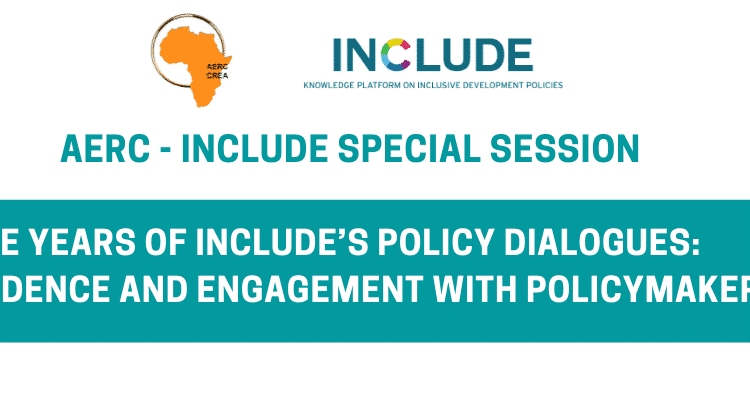This view sums up many of the criticisms that residents have about their municipalities. So, what is the problem? Are municipal officers and executives sleeping on their jobs or they are caught in a web of inefficient bureaucratic structures that do not compel them to perform? My answer is the latter because our LG structures do not let LG officers manage but administer. They are not made to face the same exigencies that corporate bodies do. Municipalities are not under pressure to perform because many of their responsibilities including revenue mobilisation, service delivery, and accountability are externalised to the central government (CG).
I propose a shift towards managing municipalities as businesses because entrepreneurial governments and management principles are transforming the way municipalities operate both in the developed and developing world, so we cannot continue with the same bureaucratic structures. While I admit that the structures, functions and objectives of municipalities may be different from profit making businesses and corporations, I’m convinced that the entrepreneurial spirit and principles that make corporations to operate efficiently otherwise they collapse can be applied to municipalities. In this context, our municipal executives, directors and senior officers should be compelled to think and shift their attitude and management style towards operating as ‘entrepreneurial municipal government’ or ‘mission-driven municipal government’ and not as a local bureaucracy. These new managerial attributes will run through how municipalities undertake planning, staff management, revenue mobilization, service delivery, and leadership.
“Are municipal officers and executives sleeping on their jobs or they are caught in a web of inefficient bureaucratic structures that do not compel them to perform?”.
Take revenue mobilisation for instance, the 260 MMDAs generate only 1% of the national revenue, incredible. With the exception of Tema, Accra and Kumasi, none of the remaining MMDAs can survive without CG transfers yet they sit on viable revenue sources (see table below).
Table: Internally generated revenue as a percentage of total municipal revenue
The metros and municipalities must be compelled to collect substantial revenues from their property rates to qualify for extra financial support provided by the CG and development partners. In South Africa, property rate alone is about 90% of metropolitan and municipal government revenue. In Ghana, property rate is about 11% in Accra metro, 2% in Tamale.
In addition, the MMDAs must reactivate the payment of basic rates. If basic rate is fixed at GHC2 and arrangements are made with the telecoms to use mobile money to pay, every LG can make not less than GHC 100,000 a year. If Assembly members are paid monthly allowance based on assemblies’ own internally generated revenue, there will be incentives for them to support revenue mobilization from their electoral areas. There are some districts whose total internally generated revenue is less than the annual salaries of their revenue collectors. If such municipalities are operating as entrepreneurial government this will not happen but for bureaucracy, it does.
For effective resource management, the LG Service must devolve substantial human resource management (hiring, motivating and firing) of staff to the metros and municipalities so they can internalise the cost of management. Letting them manage will also require some changes with respect to the perspective of CG politicians and bureaucrats who do not wish to see powerful LGs emerge to challenge the centre’s privileges to resources, power and influence in governance. Since 2007, a bill to enable municipalities borrow from the financial market (including raising municipal bond) to finance local infrastructure has been in and out of Parliament without making progress. It is time the Ministries of Finance and Local Government collaborate to seriously design municipal finance bill to parliament. The Metropolitan and Municipal Assemblies can use their share of the DACF as collateral security to raise municipal bonds.
Municipal executives and managers must be subjected to hard performance indicators in order to promote organisational performance culture in municipalities. Building the organizational culture of LGs to operate as a high performing corporate body will be needed to reduce the pressure on the CG to fix local problems. If these changes are not made, the continuous creation of municipalities will mean very little to local residents and sooner or later, the disenchantment will rise to the national level.





